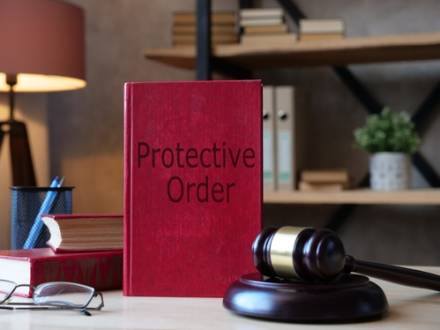Mutual Stay-Away Orders vs. Orders of Protection During Divorce
 Divorce almost always involves angry spouses, and in many cases, one spouse’s anger or violence triggers well-justified fear in the other spouse. This can lead spouses to ask the court to set clear boundaries for safety and peace of mind.
Divorce almost always involves angry spouses, and in many cases, one spouse’s anger or violence triggers well-justified fear in the other spouse. This can lead spouses to ask the court to set clear boundaries for safety and peace of mind.
Illinois law provides two main tools for this: mutual stay-away orders and orders of protection. While both restrict contact between spouses, they serve different purposes and carry very different legal consequences. At Fawell & Fawell, our Wheaton divorce attorney can help you understand these options and decide whether you want to ask for a protective order.
What Is a Mutual Stay-Away Order?
A mutual stay-away order is a type of temporary court order issued during a divorce to reduce conflict. It tells both parties not to harass, intimidate, or contact each other outside of necessary communication.
These orders are typically part of a temporary relief order under 750 ILCS 5/501, which allows Illinois courts to enter temporary rules about property, finances, and conduct while the divorce is ongoing. A mutual stay-away order applies equally to both spouses.
Violating a mutual stay-away order is not in and of itself a criminal offense, but it can lead to civil penalties in the family courtroom. Judges often use these orders to prevent escalating conflict without labeling either spouse as an abuser.
What Is an Order of Protection?
An order of protection is a much stronger legal tool used to protect victims of domestic violence or abuse. It can be requested under the Illinois Domestic Violence Act, which allows courts to restrict someone’s contact with an alleged victim and, in some cases, their children.
An order of protection can:
-
Require the respondent to stay away from the victim’s home, workplace, or school.
-
Prohibit any form of communication or physical contact.
-
Grant temporary custody or exclusive possession of the family home.
-
Restrict the respondent’s access to firearms.
Unlike a mutual stay-away order, an order of protection is not mutual; it is directed only at the alleged abuser. Violating it is a criminal offense and can result in arrest, fines, or jail time.
Call a Wheaton, IL Divorce Lawyer
If you are going through a divorce and need help understanding your options for protection, contact a DuPage County order of protection attorney for divorces at Fawell & Fawell. Our firm offers free consultations and compassionate legal guidance. With our ten years of experience, we make sure your safety and your children’s well-being come first.
Your family, our priority. Call 630-871-2400 today to learn how we can help.

 630-871-2400
630-871-2400









